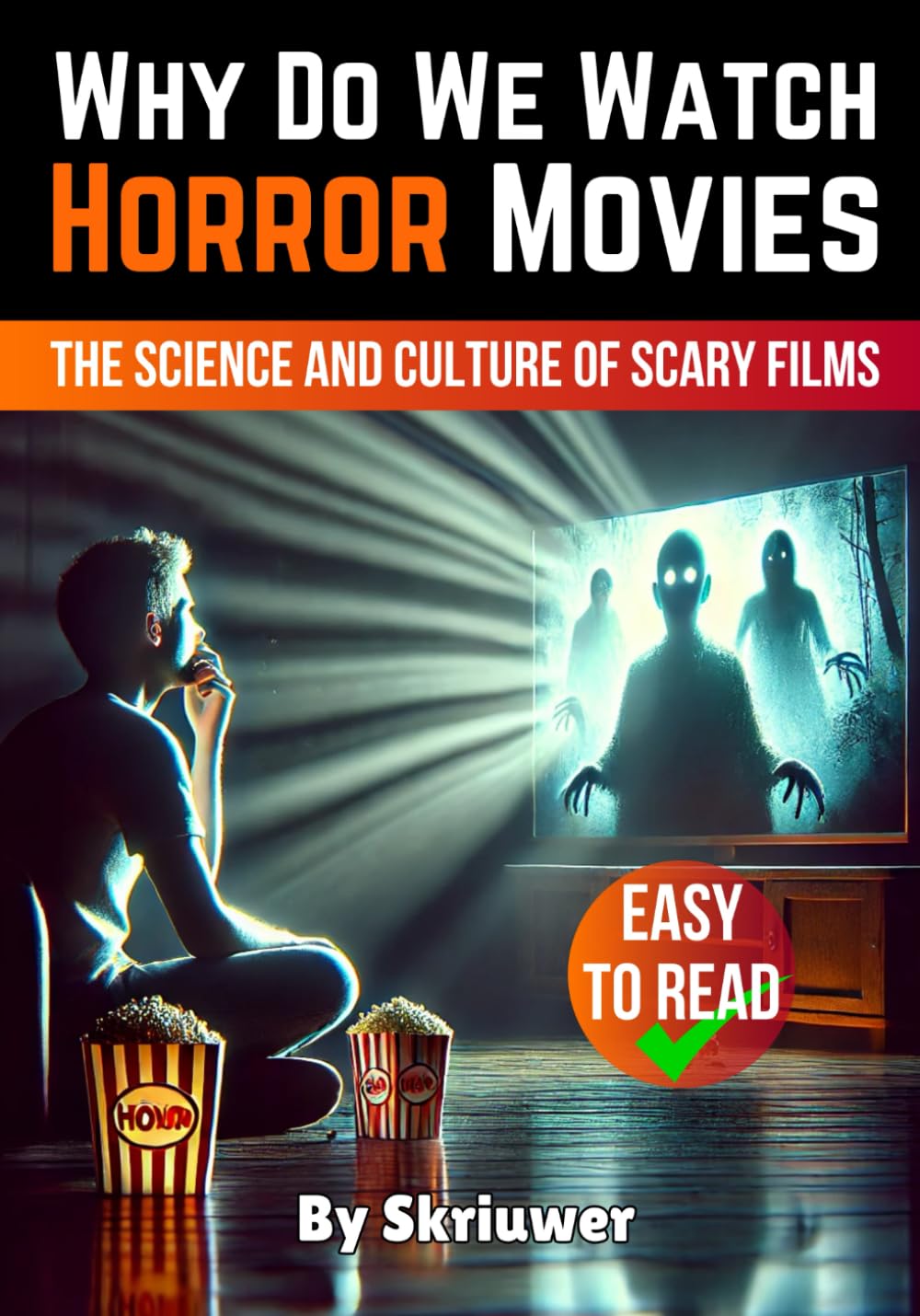Why Do We Watch Horror Movies
Why Do We Watch Horror Movies
Impossible de charger la disponibilité du service de retrait
Why Do We Watch Horror Movies takes a deep dive into our fascination with the horror genre, exploring why these films captivate and terrify audiences worldwide. From the history of horror cinema to the psychological and cultural forces at play, this book offers a comprehensive look at the powerful draw of horror films.
The book begins by tracing the origins of horror cinema, defining what makes a film truly scary, and examining how the genre has evolved over time to reflect the fears and anxieties of societies across the globe. It delves into the psychological theories behind our love for horror, including the thrill factor, catharsis, and our morbid curiosity, while also exploring the biology of fear and how our brains react to these films.
Horror films do more than scare—they mirror societal fears and serve as a form of social commentary, drawing from folklore, mythology, and historical events. Why Do We Watch Horror Movies also explores the business side of horror, including the economics, marketing strategies, and the rise of franchises and streaming services that have transformed the genre. The creative process is highlighted through the work of iconic directors, the use of music and sound, and the diversity within horror subgenres like slashers and psychological horror.
The book also examines the impact of horror on viewers, discussing the psychological effects, desensitization, and the surprising therapeutic potential of horror films. It addresses moral dilemmas, such as the Final Girl trope, and looks at how the genre tackles themes like good versus evil. Moving toward the future, Why Do We Watch Horror Movies considers emerging trends, the role of technology, and the importance of diversity in shaping the genre.
Finally, the book tackles important topics like the representation of gender in horror, the intersection of horror and mental health, and the lasting appeal of horror in popular culture. Whether you’re a die-hard horror fan, a film scholar, or just curious about what makes these movies so compelling, this book offers an insightful exploration of why horror movies continue to have a powerful hold on our imagination and remain a vital part of our cultural landscape.

Why Skriuwer.com?
-
Supporting Frisian Language
When you buy from Skriuwer, you're not just getting a book—you’re helping create more Frisian books and educational resources like LearnFrisian.com. Your support directly helps us preserve and grow the Frisian language for future generations.
-
Making Languages Accessible
We believe in making languages easy to learn and accessible. While Frisian is our passion, we also want to help people learn other key languages like Dutch and English by providing helpful resources and learning tools.
-
Investing in Future Projects
Your purchase fuels more than just current projects. It helps us dream big and plan for the future, whether that’s developing new books, launching language-learning platforms, or supporting other educational initiatives. You're helping us build something lasting!

Préserver la langue frisonne
Chez Skriuwer.com, nous croyons que la langue frisonne est bien plus que des mots – c'est une partie vivante de notre héritage. Mais comme de nombreuses langues minoritaires, elle fait face à des défis de survie dans un monde en constante évolution. C'est pourquoi notre mission est simple mais essentielle : maintenir la langue frisonne vivante et florissante pour les générations futures.
Chaque livre que nous créons, chaque histoire que nous racontons et chaque mot que nous publions fait partie d'un effort plus large pour préserver et célébrer la culture frisonne. Mais nous ne pouvons pas le faire seuls. Avec votre aide, nous pouvons vraiment faire une différence.

Comment Vous Pouvez Aider :
Achetez un Livre : Lorsque vous achetez l'un de nos livres, vous n'ajoutez pas seulement une belle œuvre littéraire à votre collection – vous soutenez directement la préservation de la langue frisonne. Chaque livre contribue à diffuser la richesse de notre langue à davantage de personnes. Vous pouvez également contribuer à cette cause en apprenant la langue frisonne via notre site partenaire, www.learnfrisian.com.
Faites un Don : Si vous croyez en notre mission, vous pouvez également faire un don pour nous aider à poursuivre notre travail. Qu'il s'agisse de financer de nouvelles publications, de soutenir des programmes éducatifs ou de nous aider à toucher davantage de locuteurs frisons, votre don peut avoir un impact durable. Cliquez simplement sur le bouton ci-dessous pour contribuer !
Ensemble, nous pouvons faire en sorte que la langue frisonne reste une partie vivante de notre monde. Rejoignez-nous dans cette aventure – votre soutien aujourd'hui signifie un avenir plus radieux pour notre langue demain.

